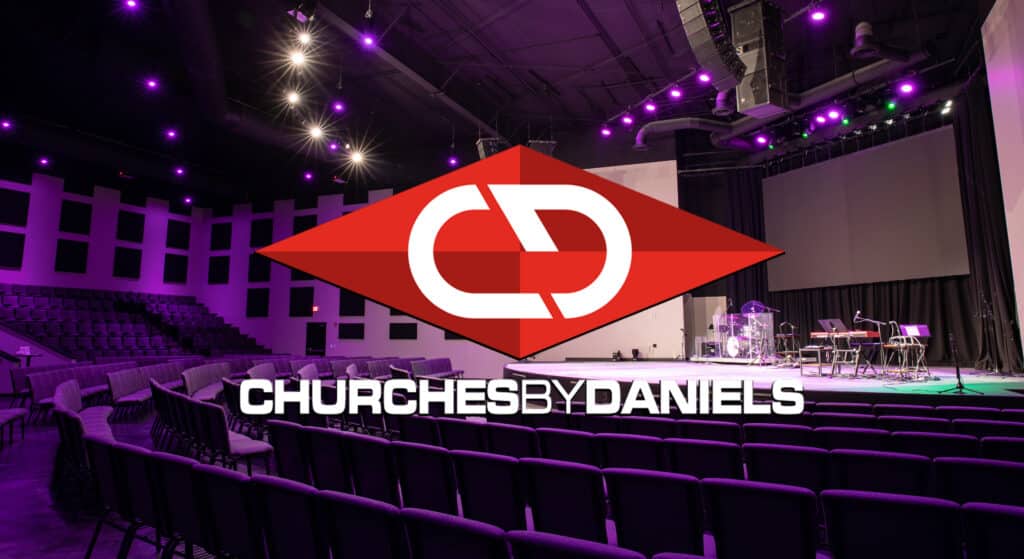By Chuck Klein
Here are key areas to consider as you begin the process.
Churches considering a large-scale building or expansion project often start with similar questions. The biggest concern is what questions should we be asking that we haven’t already considered? Your church’s project is unique to your needs and circumstance. It requires some level of introspection, understanding who you are as a church and where you are going as a ministry to determine if this is the best use of resources. The process of raising funds and building is another consideration altogether, and they require the same amount of soul searching and planning.
When trying to determine project readiness, here are some key areas to consider:
Determining the Budget
The majority of building projects never get off the ground due to one reason. A realistic budget was never established, so the project cost was determined to be too high. After plans are developed, the church discovers it’s more than they can afford. During these initial steps, if a church will first engage the builder, lender and capital stewardship consultant, this team will help the church get a good handle on the ideal project scope based on church size.
The architect can draw plans based on the need. However, the lender will help determine what can be borrowed, while the capital stewardship consultant will help to determine what amount can potentially and realistically be raised to fund the project. The builder can help determine the true construction cost of those developed renderings. Also, an experienced church builder can ensure the church stays on budget when building. Developing a support team early will enable you to benefit from their expertise and experience a smoother process.
Proverbs 15:22 reminds us of the importance of gaining wisdom from those with expertise: “Plans fail for lack of counsel, but with many advisers they succeed.”
Communicating the Vision
What do unsuccessful building projects and capital campaigns have in common? The answer is vision, or lack thereof. In projects that underperform, vision is too often not sufficiently communicated due to lack of clarity or clear explanation by leadership. Other times, the case is simply not made even though it may be a strong area of need. If God has given your leadership this vision for your ministry, show how it will enhance your church’s mission. How will it grow your church and reach more people for Christ? Your people don’t want to give to a building. They want to invest in Kingdom work.
Again, having your builder and capital stewardship consultant on board early will benefit a church greatly. They can help you introduce the project and garner support from the church. Experienced counsel can share ways that they have helped other church projects similar to yours.
Timing Can Create Momentum
Once a church determines their project, movement is crucial. When a church moves forward too quickly without first properly addressing potential concerns, the results can be disastrous. This is where a vision can die. Why? Because the “ready, fire, aim” approach will get you every time. Again, that is why it is so important to talk with an experienced support team very early in the process who can help you fully explore, develop, and articulate a vision that is based on the ministry needs of the church before building and raising funds.
On the flip side, dragging out the process can kill the momentum and excitement that the church is experiencing if there is already a perceived need for the project. “Analysis paralysis” is real. When decision-making is double guessed, the fear of moving too fast can screech any momentum to a grinding halt when there is real enthusiasm for a project. This is where your support team can help church leadership with the project approval, vision rollout, and proper staging of the capital campaign to achieve maximum momentum for your launch.
Planning Is Essential
To fund their project, most churches utilize a 4 to 6-week public capital campaign. However, it also requires 3-4 months of preparation to pull off a successful program. There is so much that needs to be considered when asking your people to pray about making a sacrificial over and above gift. If you want to reach your entire church, there needs to be a well-thought-out plan that includes education, media and promotion, activities and events to cast the vision. When there is a failure to engage the entire church, a lackluster capital campaign will be the result.
A healthy program will engage and challenge the entire church’s involvement, support and participation. A solid plan will challenge your people to pray about how God can use them. Most church capital campaigns reach less than 1/3 of their homes. A well-thought-out plan will help you reach a much higher percentage of your people, and a well-communicated vision will lead to increased commitments from your people to fund the project. Preparation pays off. While developing your capital campaign, it also needs to be a God-honoring program that He can bless. It needs to be focused on ministry growth and not just bricks and mortar. If it’s only about money, it is just a fundraiser.
This is important to remember because “Unless the Lord builds the house, its builders labor in vain.” Psalms 127:1
Getting a Good Start
Knowing what questions to ask can be incredibly helpful as you start this process. Building your support team early will help you more effectively navigate the process, giving you a roadmap to success. Planning is critical, and having the best resources on your team can help your leadership as you determine budget, timelines, messaging, and the vision rollout to your people. You get one chance to do this with excellence, so plan accordingly.
Proverbs 24:3 reminds us, “By wisdom a house is built, and through understanding it is established.”
Chuck Klein is the principal and founder of Impact Stewardship Resources, Inc., which has raised over $1 billion dollars for ministry and served over 500 churches in over 30 states, www.impactstewardship.com.













